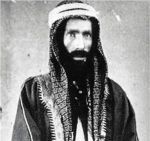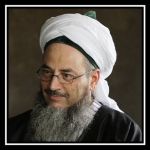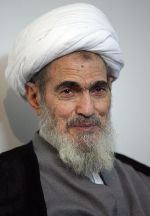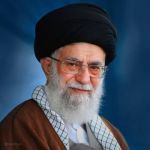Portal: Islamic Scriptures: Difference between revisions
| [checked revision] | [checked revision] |
No edit summary |
No edit summary |
||
| Line 8: | Line 8: | ||
}} | }} | ||
The idea of scripture is central to Islam; above all else, Islam's own scriptures tell of how [[Allah]] has periodically given his followers books throughout the ages, and refers to Islam's co-abrahamic religionists as [[People of the Book]]. The central scripture of Islam is above all the [[Qur'an]], which orthodox Sunni and Shi'i Islam see as the literal word of Allah through his messenger [[Muhammad]]. The Qur'an, tho, leaves much to be desired when it comes to even the basics of the Islamic religion, let alone as a guide to all aspects of life. To fill in these gaps as it were, the hadith, narrations about the words and deeds of the prophet are also extant; on top of this very important source is the [[sira]], the writings about the lift of the prophet, and the [[tafsir]], learned commentary upon the Qur'an which leverages the other two extra-Quranic scriptures. Although the Qur'an itself is beyond reproach, the other three sources are subject to various degrees of trustworthiness, which have been defined throughout the ages by [[Portal: Traditional Scholars|the Islamic scholarly community]], The evaluation of hadith, sira, and tafsir for its trustworthiness constitutes a large part of the work done for the Islamic community by its scholars. | |||
== Qur'an== | == Qur'an== | ||
The | The Qur'an is the holiest scripture of Islam; some Muslims, known as [[Quranism|Quranists]], claim to follow it and it alone (these Muslims are considered heretics by orthodox Sunni Muslims, inter alia). According to orthodox Sunni doctrine, it is the full, complete, unaltered word of Allah directly to his apostle Muhammad (Shi'ites claim that though the portion we have is untouched, Sunnis have cut out many chapters and verse which they did not want in the final Qur'an). As such its study is of great importance to Muslim scholars, and Muslim believers study it in their own time for their own spiritual growth. As the direct and literal word of Allah, orthodox Sunni Islam submits that the Qur'an is flawless in every way, from its "clear" Arabic to its claims about history and science. In addition to articles about the Qur'an, its contents, its history, and its interpretation, this section contains our [[as | ||
<div class="articleSummaryColumnsWrapper"> | <div class="articleSummaryColumnsWrapper"> | ||
<div class="articleSummaryColumn"> | <div class="articleSummaryColumn"> | ||
{{PortalArticle|image= | {{PortalArticle|image=|title=Textual History of the Qur'an|summary= The history of the Qur'an as a text comports in many way to the description we have of it in Islamic sources--although there are some discrepencies.|description=}} {{PortalArticle|image=|title=Mary, Sister of Aaron|summary= The author(s) of surat-Maryam, the surah of Mary, seems to be under the mistaken impression that Mary, the mother of Jesus Christ, was also a siter of Aaran, the brother of Moses|description=}} {{PortalArticle|image=|title=Scientific Errors in the Quran|summary= Sunni orthodoxy claims that the Qur'an is infallible when it speaks of matters of science, but a close comparison to the scientific undestanding of the text of the Qur'an to modern science shows many revealing mistakes|description=}} {{PortalArticle|image=|title=Sana'a Manuscript|summary= The majority of the manuscripts of the Qur'an which are today extant seem to be descended from the recension that was ordered created by the caliph [[Uthman]], and show a remarkable uniformity; a palimpset, or impression of an erased Qur'an, on a scroll which was found in the Yemeni city of San'a, however, reveals a manuscript with some remarkable differences from the accepted Uthmanic recension|description=}} {{PortalArticle|image=|title=Naskh (Abrogation)|summary= Many verses in the Qur'an disagree with eachother, sometimes on important points; the doctrine of Naskh explains which vesers take precedence in any given conflict, and how this is decided by the scholars.|description=}} | ||
Revision as of 01:06, 10 February 2021
The idea of scripture is central to Islam; above all else, Islam's own scriptures tell of how Allah has periodically given his followers books throughout the ages, and refers to Islam's co-abrahamic religionists as People of the Book. The central scripture of Islam is above all the Qur'an, which orthodox Sunni and Shi'i Islam see as the literal word of Allah through his messenger Muhammad. The Qur'an, tho, leaves much to be desired when it comes to even the basics of the Islamic religion, let alone as a guide to all aspects of life. To fill in these gaps as it were, the hadith, narrations about the words and deeds of the prophet are also extant; on top of this very important source is the sira, the writings about the lift of the prophet, and the tafsir, learned commentary upon the Qur'an which leverages the other two extra-Quranic scriptures. Although the Qur'an itself is beyond reproach, the other three sources are subject to various degrees of trustworthiness, which have been defined throughout the ages by the Islamic scholarly community, The evaluation of hadith, sira, and tafsir for its trustworthiness constitutes a large part of the work done for the Islamic community by its scholars.
Qur'an
The Qur'an is the holiest scripture of Islam; some Muslims, known as Quranists, claim to follow it and it alone (these Muslims are considered heretics by orthodox Sunni Muslims, inter alia). According to orthodox Sunni doctrine, it is the full, complete, unaltered word of Allah directly to his apostle Muhammad (Shi'ites claim that though the portion we have is untouched, Sunnis have cut out many chapters and verse which they did not want in the final Qur'an). As such its study is of great importance to Muslim scholars, and Muslim believers study it in their own time for their own spiritual growth. As the direct and literal word of Allah, orthodox Sunni Islam submits that the Qur'an is flawless in every way, from its "clear" Arabic to its claims about history and science. In addition to articles about the Qur'an, its contents, its history, and its interpretation, this section contains our [[as
The history of the Qur'an as a text comports in many way to the description we have of it in Islamic sources--although there are some discrepencies.
The author(s) of surat-Maryam, the surah of Mary, seems to be under the mistaken impression that Mary, the mother of Jesus Christ, was also a siter of Aaran, the brother of Moses
Sunni orthodoxy claims that the Qur'an is infallible when it speaks of matters of science, but a close comparison to the scientific undestanding of the text of the Qur'an to modern science shows many revealing mistakes
The majority of the manuscripts of the Qur'an which are today extant seem to be descended from the recension that was ordered created by the caliph Uthman, and show a remarkable uniformity; a palimpset, or impression of an erased Qur'an, on a scroll which was found in the Yemeni city of San'a, however, reveals a manuscript with some remarkable differences from the accepted Uthmanic recension
Many verses in the Qur'an disagree with eachother, sometimes on important points; the doctrine of Naskh explains which vesers take precedence in any given conflict, and how this is decided by the scholars.
Other articles in this section
Modern scholars
The modern period brought about a confrontation between modernity, and all of its attendant movements and ideas, and the scholars of Islam, whose background and basis is in the writings of men who lived in a civilization which was very sure of itself and unchallenged. As such, even the most reactionary Islamic scholars can be read as being in conversation with modernity, even if this conversation entails a wholesale rejection of the concept.
Hamood bin Uqla Ash-Shu'aibi was a hardcore salafi scholar who was quoted my Usama bin Laden and was influential in the jihad movement in the 21st century.
Muhammad ibn Abd al-Wahhab was an influential Islamic scholar in the Arabian peninsula during the early modern period. His thought was very influential on the salafi and takfiri schools of jihadi Islam was well as the Hanbali Islam of the Kingdom of Saudi Arabia.
Gibril Haddad is an influential Beirut-born scholar of hadith as well as translator. He is a self-described opponent of "salafi fundamentalism."
Other articles in this section
Hadith
The modern period has brought many challenges to the Muslim ummah which were not heavily considered by scholars of previous ages, including large Muslim populations living in otherwise non-Muslim governments and socieites in places like Europe and India. This has brought with it debate and competition for the minds and souls of the people in these societies, against other religions such as Christianity and the advance of atheism in the contemporary period. In order to meet this challenge, popular "dawah" preachers have arisen who have a style more familiar to protestant pastors and atheist preachers such as Christopher Hitchens, but who never the less hew to very traditional understandings of the Islamic tradition.
Zakir Naik is a popular Sunni preacher from India. His fiery defenses of Islam and his outreach to other religious groups such as atheists and Hindus have made him popular with many Muslim believers, but he has also stirred controversy with statements supportive of Usama bin Laden and terrorism.
Sira
Shi'i scholar belong to a different tradition than their Sunni counterparts. Thanks to the doctrine of vilayet-e-figh in Iran, many Shi'ite clerics also hold important roles in the contemporary Iranian government
ِAli Meshkini is a high-ranking Shi'i cleric and member and chairman of the Assembly of Experts which picks the Supreme Leader of the Islamic Republic.
Ali Khamenei is an ayatollah in the Shi'i scholarly tradition and the current supreme leader of the Islamic Republic of Iran






